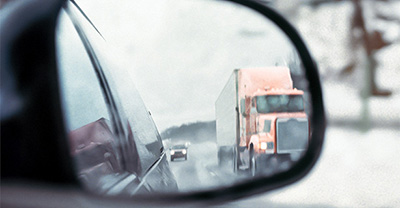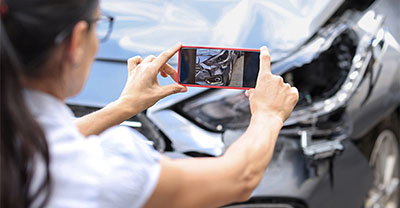DUI insurance
How a DUI impacts your car insurance coverage
If you get a DUI driving conviction, you likely have a million thoughts running through your head, from possible costs to how you’re going to tell your family and friends. We’re here to provide information on what happens when you get a DUI citation, and what you need to know about DUI insurance. Explore Dairyland’s cheap car insurance options to find the coverage that fits your lifestyle and budget.
What happens after a DUI violation?
If you’re convicted of driving under the influence (DUI), there are numerous possible consequences, from losing money to losing your right to drive. Depending on your history and the severity of the offense, you might incur:
A fine reaching several hundred dollars
Jail time
Loss of driving privileges—a driver’s license suspension or restriction
Mandatory enrollment in a DUI program
Probation in lieu of jail time
Community service requirements
A court-ordered mandate to use an ignition interlock device
Required attendance at Alcoholics Anonymous meetings
Impoundment of your vehicle
This isn’t a complete list—nor meant to discourage you. But you should be aware of what could happen.
In general, if you’re convicted of a DUI, you may face jail time and substantial fines, especially if you’re a repeat offender. State laws and regulations vary, as do the consequences. If you’re a first-time DUI offender, most states mandate a probationary period of approximately three years. However, in some states, your conviction could remain on your driver’s record longer.

Request a free car insurance quote.
A DWI or OWI—are these the same as a DUI?
Essentially, yes. Driving while intoxicated (DWI) and operating while intoxicated (OWI) are each a criminal offense involving operating a vehicle with a blood-alcohol content (BAC) above the state limit. States vary in how these terms are used, and often, these terms are used interchangeably.
Will I have problems getting insurance after a DUI?
If you’re convicted of a drunken driving offense, you may have trouble obtaining auto insurance coverage. Drivers convicted of DUI are usually considered high-risk or nonstandard drivers—and not all car insurance companies offer nonstandard car insurance. Even when you find an insurance company offering coverage, you may end up paying a lot more than drivers without a DUI conviction.
If you can’t afford to pay the rate increase for your car insurance coverage, you do have options. However, driving without insurance isn’t one of them. Every state has minimum car insurance requirements.
Consider taking public transportation, walking, or biking. You might also consider purchasing a Dairyland® non-owner car insurance policy, with SR22 insurance, if you don’t own a vehicle but need to drive from time to time. It’s a cheaper car insurance option.
Luckily, there are companies like Dairyland that understand mistakes happen and are available to provide options in times like this.
Tell me more about an SR22
If you incur a DUI conviction, you may be required to have a certificate of insurance with your respective state that proves you’re meeting your state’s car insurance coverage requirements. These certificates are typically known as SR22s or, if in Florida or Virginia, FR44s. At minimum, you’ll need to purchase liability insurance coverages to get the filing.
When you buy your auto insurance, the insurance company will give you this form and send a copy to the state. Note that some insurance companies charge you for this filing. However, at Dairyland, we typically handle that for free with the purchase of an auto policy.
What else affects my car insurance premiums?
When determining the appropriate policy and rates for a driver who has a DUI conviction on their record, insurance companies may consider more than just the DUI. They may also look at driving history for moving violations, reckless driving violations, lapses in insurance coverage, multiple car accidents, or excessive insurance claims.
How can I get my driver's license back?
Some states require a mandatory hearing within a 30-day period of the DUI offense. At this hearing, you may get your license back. However, it might be a restricted license. Getting a restricted driver’s license generally requires three actions on your behalf:
Show proof of enrollment in an approved DUI program
Show proof of financial responsibility—depending on your state, an SR22 or a FR44
Pay a reissue fee to the state licensing department
You should also consult the appropriate court or a local attorney for specific requirements.
What’s an ignition interlock device?
If you’re convicted of multiple DUI offenses (or per court order), an ignition interlock device may be installed on your vehicle. This device measures the driver’s BAC and won’t allow the car to start if the BAC is over the state’s legal limit or the limit the court has set on the device.
Getting a DUI or DWI offense on your DMV record shouldn’t be taken lightly. However, it’s not the end of the world. When it comes to getting car insurance after a DUI and being legal on the road, we can help. Get in touch with us.
Frequently asked questions on DUI
If I get a DUI, do I automatically lose my driver’s license?
If you’re convicted of a DUI, your driver’s license will likely be suspended or revoked depending on several factors, including your driving history, the severity of the offense, and the laws in the state you reside in.
How much is a DUI going to cost me?
The total cost of incurring a DUI goes beyond a court fee. The fine for a DUI depends on driver history, the severity of the violation, and the state you reside in, among other factors. Other costs may include lost wages if you have to serve jail time, impoundment fees for your vehicle, paying to use alternate modes of transportation, and an increase in your car insurance rates.
How long is a DUI going to be on my record?
This depends on which state you live in. In most states, a DUI stays on your driving record for three to five years.
How soon can I get back behind the wheel after a DUI?
Again, this depends on the state you live in. In some cases, you may be able to drive again after 30 days, with restrictions. You should consult the appropriate court or a local attorney for specific conditions.
Will my car insurance rates ever go down after a DUI?
Most of that depends on you. You could see a reduction in your rates by maintaining a clean driving record, meeting your state’s requirements to legally drive, and paying your premiums on time.










